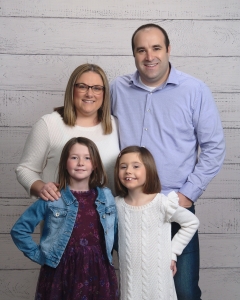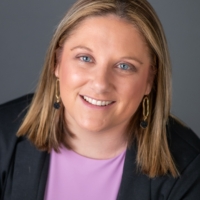Author Name: Kim Hindery, Senior Program Manager, Child Neurology Foundation
Publish Date: September 6, 2024
Introduction
In this blog post, I reflect on my personal experience with the challenges and triumphs of raising a child with rare brain conditions, inspired by the powerful insights from The Unseen Documentary. I’ll share how my daughter’s journey with polymicrogyria and schizencephaly mirrors the struggles depicted in the film, from initial medical predictions to the daily emotional and practical challenges we face. Additionally, I’ll discuss the impact caregiving has on our family and how my work with the Child Neurology Foundation offers solace and purpose amid these trials. Through this narrative, I hope to shed light on the realities of parenting a child with severe neurological conditions and the importance of community and support.
Watch the trailer for Unseen!
The Unseen Documentary: A Personal Reflection

The Hindery Family
The Unseen Documentary was like watching my own life unfolding on T.V. My daughter is only 8 years old, but we struggle with the same exact issues that came alive on the screen. With 2 rare brain conditions, polymicrogyria and schizencephaly, my daughter was told at age 1 that she wouldn’t walk or talk and that we should prepare to order her a wheelchair in 6 months. She defied all odds and walks and talks. However, we will be ordering a wheelchair soon for stamina and quality of life purposes.
Daily Life Challenges: Coping with Rare Brain Conditions
Our daily life consists of mental health challenges like those shown in the documentary. Like Lucas, my daughter struggles with aggressive behavior, tantrums, and screaming. There are days when you wonder how much more you can take. As Ronne mentioned, there is no joy when your child is screaming. But, there is so much I love about my daughter. She is witty, creative, smart, and so funny. What I don’t love is the hand she has been dealt. The Unseen Documentary reminded me that there are others out there who have also been dealt this hand.
The Emotional Toll of Caregiving
The Unseen Documentary highlighted for me the stress and anxiety of the life of a parent caregiver. The toll it takes on the whole family, including siblings, is gut-wrenching. I find myself worrying about the school calling, waiting for the next illness that could land us back in the hospital, or what will happen if an organization doesn’t appear by the time she is an adult that can take care of her. Like Ronne, the stress physically hurts my body.
Finding Hope and Purpose Through the Child Neurology Foundation
My saving grace is the work I do for the Child Neurology Foundation. It drives me to help more families like mine. I don’t do anything in my day that doesn’t impact a family. It gives me peace, clarity, and hope that some day this life will be easier.

Author Bio
Kim Hindery is an experienced professional who has been diligently advocating for children with special healthcare needs and their families for over 18 years. Outside of her professional commitments, Kim enjoys reading for both education and leisure, volunteering on the Parent-Teacher Organization for her daughters’ schools, and spending quality time with her family and friends. She resides just outside of Cincinnati, Ohio, with her husband and two daughters, one of whom has cerebral palsy.
More from Kim: Read “When We Have Community, Hope Prevails”.
About Child Neurology Foundation
The Child Neurology Foundation (CNF) is a leading nonprofit organization dedicated to supporting children and their families living with neurologic conditions. Our vision is to create a world in which all children affected by neurologic disorders reach their full potential. We work closely with families, healthcare professionals, researchers, and advocacy groups to provide essential resources, foster connections, and drive research and innovation in the field of child neurology.
For more information, please visit our homepage at www.childneurologyfoundation.org or contact us at [email protected].

